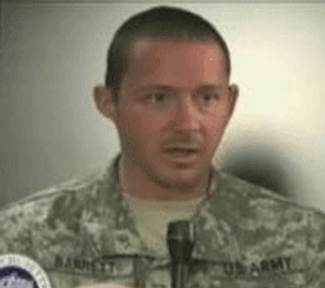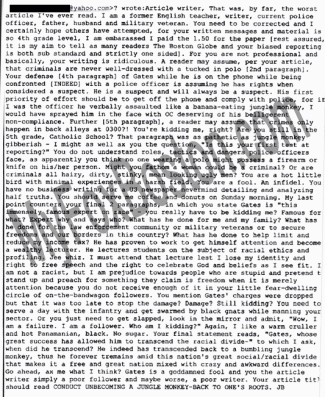The Emoluments clause, U.S. Constitution Article I, Section 9, Clause 8 (art. I, § 9, cl. 8), provides:
In a memorandum finding that NASA employees could not take paid leave to work for a Canadian University that was chartered under Canadian law, the United States Department of Justice has defined “King, Prince or foreign State” to include foreign universities:
There can be no doubt that the Nobel Prize Committee is an institution of the Norwegian government. The Nobel website states:
Given that the avowed purpose of the award is to empower the President to exercise his influence in support of the Nobel commission’s mission to allegedly foment world peace, and comes with a very substantial “emolument,” $1.4 Million USD, it should be no-brainer that this comes up in front of Congress. Mr. Reid, Madam Pelosi, front and center! Let’s get this done before we vote on health care, okay?
This issue has already been raised by an anonymous poster, so I cannot claim to be an original thinker. However, the question is rather obvious, and I am uncertain why Attorney General Eric Holder has failed to consider it. Except, perhaps, that reading the Constitution isn’t a big priority inside the Beltway.
P.S. What I didn't cover here was this, far more trenchant question -- since when is the Commander in Chief of the world's largest rogue police force, a man who has failed to make good on promises to end torture and adventurism, who props up a puppet dictator in Afghanistan, and presides over a drone force that kills people like targets in a video game, a "Peace Prize" Winner?
APPLICABILITY OF EMOLUMENTS CLAUSE TO EMPLOYMENT OF GOVERNMENT EMPLOYEES BY FOREIGN PUBLIC UNIVERSITIES
The Emoluments Clause does not apply in the cases of government employees offered faculty employment by a foreign public university where it can be shown that the university acts independently of the foreign State when making faculty employment decisions.
March 1, 1994
MEMORANDUM FOR LAWRENCE F. WATSON
CHIEF COUNSEL
GODDARD SPACE FLIGHT CENTER
NATIONAL AERONAUTICS AND SPACE ADMINISTRATION
This memorandum responds to your request of September 9, 1993, for our opinion concerning the applicability of the Emoluments Clause, U.S. Const. art. I, § 9, cl. 8, to the employment by the University of Victoria in British Columbia, Canada, of two scientists on leave without pay from the Goddard Space Flight Center (Goddard), a component of the National Aeronautics and Space Administration (NASA). (1) We conclude that the Emoluments Clause does not apply in these cases.
I.
As Goddard has explained, Drs. Inez Fung and James K. B. Bishop have sought your administrative approval for employment as Professors in the School of Earth and Ocean Sciences at the University of Victoria until August 31, 1994. During that period, the two scientists would be in Leave Without Pay status from their positions at the Goddard Institute for Space Studies, a component of Goddard. (Goddard is itself a NASA field installation.) Both scientists hold the position of Aerospace Technology (AST)/Global Ecology Studies at the GS-15 level. For their services in teaching and research while on leave, Drs. Fung and Bishop would be paid $85,000 and $70,000 respectively by the University of Victoria.
The University of Victoria operates under the University Act, a statute enacted by the legislature of British Columbia. See University Act, R.S.B.C. 1979, ch. 419, as amended; Goddard Mem., Attachment 7. The Act provides that the university is to consist of a chancellor, convocation, board, senate and faculties. Id., Pt. 3, § 3(2). The chancellor is to be elected by the members of the convocation, id., Pt. 5, § 11(1), and is to serve on the board of governors, id., Pt. 6, § 19(a). The convocation is composed of the chancellor, the president, the members of the senate, all faculty members, all graduates, all persons added to the roll of the convocation by the senate, and all other persons carried on the roll before July 4, 1974. Id., Pt. 4, § 5.
The Supreme Court of Canada has outlined the powers of the boards of governors and senates subject to the University Act:
Under the University Act, R.S.B.C. 1979, c. 419, the management, administration and control of the property, revenue, business and affairs of the university are vested in a board of governors consisting of 15 members. Eight of the members are appointed by the Lieutenant Governor in Council, but two of these must be nominated by the alumni association. The provincial government, therefore, has the power to appoint a majority of the members of the board of governors, but it does not have the power to select a majority. The academic government of the university is vested in the senate, only a minority of the members of which are appointed by the Lieutenant Governor.
Harrison v. University of British Columbia, [1990] 3 S.C.R. 451, 459 (judgment of Dickson, C.J., and La Forest and Gonthier, JJ.) (plurality op.). Further, "under s. 22(1) of the Act, the Lieutenant Governor 'may, at any time, remove from office an appointed member of the board.'" Id. at 467 (Wilson, J., dissenting).
In general, the "management, administration and control of the property, revenue, business and affairs of the university are vested in the board." University Act, Pt. 6, § 27. In addition, the university "enjoys special government-like powers in a number of respects and the exercise of these would presumably fall under the jurisdiction of the board. It has the power to expropriate property under s. 48 and its property is protected against expropriation under s. 50. It is exempt from taxation under s. 51. The board may also borrow money to meet University expenditures (s. 30) and appoint advisory boards for purposes it considers advisable (s. 33). The University may not dispose of its property without the approval of the Lieutenant Governor (s. 47(2))." Harrison, [1990] 3 S.C.R. at 467 (Wilson, J., dissenting).
As pointed out above, the academic governance of the university is vested in the senate. University Act, Pt. 7, § 36. The senate is composed of a number of persons, including the Chancellor, the President, deans, administrators, faculty, students, 4 members of convocation, representatives of affiliated colleges, and 4 persons appointed by the Lieutenant Governor. Id., § 34. Thus, only a relatively small minority of the senate will consist of governmental appointees. (2)
Finally, the faculty is "constituted by the board, on the recommendation of the senate." University Act, Pt. 8, § 38. The faculty has various powers, including the power to determine, subject to the approval of the senate, courses of instruction. Id., § 39(d).
II.
The Emoluments Clause, U.S. Const. art. I, § 9, cl. 8, provides:
No Title of Nobility shall be granted by the United States: And no Person holding any Office of Profit or Trust under them, shall, without the Consent of the Congress, accept of any present, Emolument, Office, or Title, of any kind whatever, from any King, Prince, or foreign State.
Goddard advances two basic arguments for concluding that the Emoluments Clause is inapplicable in these cases. First, it maintains that the University of Victoria is not a "foreign State" within the meaning of the Clause. Second, it suggests that when a Federal employee is on Leave of Absence Without Pay status, he or she does not occupy an "Office of Profit or Trust" under the United States. For reasons somewhat different from Goddard's, we agree that the Clause is inapplicable here. Although we believe that foreign public universities, such as the University of Victoria, are presumptively foreign States under the Emoluments Clause, we also find that, in this case, the university can be shown to be acting independently of the foreign State with respect to its faculty employment decisions. Because such a showing can be made, we conclude that in that context the University of Victoria should not be considered a foreign State.
A.
The Emoluments Clause was adopted unanimously at the Constitutional Convention, and was intended to protect foreign minister (3) James Madison's notes on the Convention for August 23, 1787 report:
Mr[.] Pinkney urged the necessity of preserving foreign Ministers & other officers of the U.S. independent of external influence and moved to insert -- after Art[.] VII sect[.] 7. the clause following -- "No person holding any office of profit or trust under the U.S. shall without the consent of the Legislature, accept of any present, emolument, office or title of any kind whatever, from any King, Prince or foreign State["] which passed nem: contrad.
2 M. Farrand (ed.), The Records of the Federal Convention of 1787 389 (1966); see also 3 id. at 327 (remarks of Governor Randolph). (4) "Consistent with its expansive language and underlying purpose, the provision has been interpreted as being 'particularly directed against every kind of influence by foreign governments upon officers of the United States, based upon our historic policies as a nation.' 24 Op. Att'y Gen. 116, 117 (1902) (emphasis in original)." Applicability of Emoluments Clause to Proposed Service of Government Employee on Commission of International Historians, 11 Op. O.L.C. 89, 90 (1987).
Our Office has been asked from time to time whether foreign entities that are public institutions but not diplomatic, military or political arms of their government should be considered to be "foreign State[s]" for purposes of the Emoluments Clause. In particular, we have been asked whether foreign public universities constitute "foreign State[s]" under the Clause. Our prior opinions on this subject have not been a seamless web. Thus, in an opinion that Goddard cites and relies upon, we concluded that while the University of New South Wales was clearly a public institution, it was not so clear that it was a "foreign State" under the Emoluments Clause, given its functional and operational independence from the federal and state governments in Australia. (5) Accordingly, we opined that the question posed there -- whether a NASA employee could accept a fee of $150 for reviewing a Ph.D. thesis -- had to be answered by considering the particular circumstances of the case, in order to determine whether the proposed arrangement had the potential for corruption or improper foreign influence of the kind that the Emoluments Clause was designed to address. On other occasions, however, we have construed the Emoluments Clause to apply to public institutions of higher education in foreign countries without engaging in such an inquiry. (6)
In re-examining these precedents, we have considered the claim that foreign universities, even if "public" in character, should generally not be considered to be instrumentalities of foreign States for purposes of the Emoluments Clause. On behalf of this view, it can be argued that the Clause was designed to guard against the exercise of improper influence on United States officers or employees by the political, military or diplomatic agencies of foreign States, because payments by those agencies are most likely to create a conflict between the recipient's Federal employment and his or her outside activity. Because public universities do not generally perform such functions, they ought not, on this analysis, to be brought within the Clause. (7)
After considering the question carefully, we have concluded that such an interpretation of the Emoluments Clause is mistaken. Foreign public universities are, presumptively, foreign States within the meaning of the Clause. (8)
The language of the Emoluments Clause is both sweeping and unqualified. (9) The Clause in terms prohibits those holding offices of profit or trust under the United States from accepting "any present, Emolument, Office, or Title, of any kind whatever" from "any . . . foreign State" unless Congress consents (emphases added). There is no express or implied exception for emoluments received from foreign States when the latter act in some capacity other than the performance of their political, military or diplomatic functions. The decision whether to permit exceptions that qualify the Clause's absolute prohibition or that temper any harshness it may cause is textually committed to Congress, which may give consent to the acceptance of offices or emoluments otherwise barred by the Clause. (10)
Further, it serves the policy behind the Emoluments Clause to construe it to apply to foreign States even when they act through instrumentalities such as universities which do not perform political, military or diplomatic functions. Those who hold offices under the United States must give the government their unclouded judgment and their uncompromised loyalty. (11) That judgment might be biased, and that loyalty divided, if they received financial benefits from a foreign government, even when those benefits took the form of remuneration for academic work or research. (12) Moreover, institutions of higher learning are often substantially funded, whether directly or indirectly, by their governments, and university research programs or other academic activities may be linked to the missions of their governmental sponsors, including national scientific and defense agencies. (13) Thus, United States Government officers or employees might well find themselves exposed to conflicting claims on their interests and loyalties if they were permitted to accept employment at foreign public universities. (14)
Finally, Congress has exercised its power under the Emoluments Clause to create a limited exception for academic research at foreign public institutions of learning. The Foreign Gifts and Decorations Act provides in part that Federal employees may accept from foreign governmental sources "a gift of more than minimal value when such gift is in the nature of an educational scholarship." 5 U.S.C. § 7342(c)(1)(B). (15) Thus, Congress has recognized that foreign governmental bodies may wish to reward or encourage scholarly or scientific work by employees of our Government, but has carefully delimited the circumstances in which Federal employees may accept such honors or emoluments. That suggests that Congress believes both that the Emoluments Clause extends to paid academic work by Federal employees at foreign public universities, and that the Clause's prohibition on such activity should generally remain in force.
Accordingly, we conclude that foreign governmental entities, including public universities, are presumptively instrumentalities of foreign States under the Emoluments Clause, even if they do not engage specifically in political, military or diplomatic functions. (16)
B.
Having found that foreign public universities may and presumptively do fall under the Emoluments Clause, we turn next to the question whether the University of Victoria in particular is an instrumentality of a foreign State (the province of British Columbia), and hence within the Clause. We conclude that it is not, at least with respect to the faculty employment decisionmaking that is in issue here.
Goddard contends that "[t]he ability of [Canadian] federal or provincial government officials to influence and control the actions of [the University of Victoria's board, senate and faculty] is most possible concerning the Board, but in all three cases is minimized by the other members of the organizations, the sources from which those members are obtained, the method of their nominations and appointments, and the procedures concerning replacement . . . Thus, it appears [that] the University of Victoria is established as a largely self-governing institution, with minimal influence exercisable over the daily affairs and even general policies of the University." Goddard Mem. at 6.
Without attempting to decide whether, as Goddard claims, the University of Victoria is generally free from the control of the provincial government of British Columbia, we think that the evidence shows that the university is independent of that government when making faculty employment decisions. We rely here chiefly on the Supreme Court of Canada's decisions in the Harrison case, cited above, and in the companion case, McKinney v. University of Guelph, [1990] 3 S.C.R. 229.
The principal question presented in Harrison was whether the University of British Columbia's mandatory retirement policy respecting its faculty and administrative staff was consistent with the requirements of the Canadian Charter of Rights and Freedoms (the Charter). (17) Whether the Charter applied turned on whether the challenged policy constituted governmental action -- an inquiry raising issues at least somewhat akin to those posed by the "State action" doctrine in United States jurisprudence. See Harrison, [1990] 3 S.C.R. at 463 (plurality op.). (18) Over dissent, the Court held that the university's policy was not governmental action under the Charter. In reaching that conclusion, three of the seven judges drew a distinction between "ultimate or extraordinary control and routine or regular control," and held that while the government of British Columbia may be able to exercise the former, it lacked "the quality of control that would justify the application of the Charter." Id.; see also id. at 478 (L'Heureux-Dubé, J., dissenting on the appeal only) (university not "government" for purpose of section 32 of Charter).
Similarly, in McKinney, a majority of the Court, again over dissent, held that the mandatory retirement policies of the defendant universities (there, located in the Province of Ontario) did not implicate the Charter. Moreover, the lead opinion emphasized the autonomy of the provincial universities when making faculty employment decisions:
The Charter apart, there is no question of the power of the universities to negotiate contracts and collective agreements with their employees and to include within them provisions for mandatory retirement. These actions are not taken under statutory compulsion, so a Charter attack cannot be sustained on that ground. There is nothing to indicate that in entering into these arrangements, the universities were in any way following the dictates of the government. They were acting purely on their own initiative . . . The legal autonomy of the universities is fully buttressed by their traditional position in society. Any attempt by government to influence university decisions, especially decisions regarding appointment, tenure and dismissal of academic staff, would be strenuously resisted by the universities on the basis that this could lead to breaches of academic freedom. In a word, these are not government decisions.
McKinney, [1990] 3 S.C.R. at 269, 273 (plurality op.); see also id. at 418-19 (L'Heureux-Dubé, J., dissenting) (while universities may perform certain public functions attracting Charter review, hiring and firing of employees at universities in both British Columbia and Ontario are not among such actions; "Canadian universities have always fiercely defended their independence.").
While the Ontario statute at issue in McKinney differed from the British Columbia statute considered in Harrison (in particular, Ontario's statutes, unlike British Columbia's, did not permit the provincial government to appoint a majority of a university board's membership), the Harrison plurality held that these differences did not establish that the core functions of the British Columbian universities were under the province's control. Harrison, [1990] 3 S.C.R. at 463-64 (plurality op.) Thus, the Court's statements in McKinney concerning the autonomy of Ontario's universities in matters of faculty employment would apparently hold true for the universities in British Columbia as well. (19) Furthermore, even the dissent in Harrison acknowledged "the lack of government control over the mandatory retirement policies specifically in issue here and over matters specifically directed to the principle of academic freedom." Id. at 472 (Wilson, J., dissenting). (20) The remaining member of the Court accepted the trial court's finding that the university's employment agreements were essentially private contracts. Id. at 479-80 (L'Heureux-Dubé, J., dissenting on appeal only).
These Canadian cases cannot of course determine our interpretation of the Emoluments Clause. But they do provide compelling evidence that the University of Victoria is independent of the government of British Columbia with respect to decisions regarding the terms and conditions of faculty employment. Because that showing can be made, we believe the university should not be considered to be a foreign State under the Emoluments Clause when it is acting in that context. (21)
Conclusion
The Emoluments Clause does not prohibit the two NASA scientists from accepting paid teaching positions at the University of Victoria during their unpaid leave of absence from their agency.
Walter Dellinger
Assistant Attorney General
1 See Letter to Walter Dellinger, Acting Assistant Attorney General, Office of Legal Counsel, from Lawrence F. Watson, Chief Counsel, Goddard Space Flight Center, National Aeronautics and Space Administration, dated September 9, 1993 (the Goddard Mem.).
2 "With respect to some important matters, however, the decisions of the senate are effectively controlled by the board of governors." Harrison, [1990] 3 S.C.R. at 469 (Wilson, J., dissenting). For example, "every resolution passed by the senate respecting the establishment or discontinuance of any faculty, department, course of instruction, chair fellowship, scholarship, exhibition, bursary or prize (s. 36(i)) as well as internal faculty matters and terms of affiliation with other universities is of no force or effect unless approved by the board (s. 37)." Id.
3 See, e.g., The Federalist No. 22, at 149 (Alexander Hamilton) (Clinton Rossiter ed., 1961) ("One of the weak sides of republics, among their numerous advantages, is that they afford too easy an inlet to foreign corruption.").
4 The Emoluments Clause builds upon practices that had developed during the period of the Confederation. "It was the practice of Louis XVI of France to give presents to departing ministers who signed treaties with France. Before he left France in mid-1780, Arthur Lee received a portrait of Louis set in diamonds atop a gold snuff box. In October 1780 Lee turned the gift over to Congress, and on 1 December Congress resolved that he could keep the gift. In September 1785 Benjamin Franklin informed Secretary for Foreign Affairs John Jay that, when he left France, Louis XVI presented him with a miniature portrait of himself, set with 408 diamonds. In October Jay recommended to Congress that Franklin be permitted to keep the miniature in accordance with its December 1780 ruling about a similar miniature given to Lee. In March 1786 Congress ordered that Franklin be permitted to keep the gift. At the same time, Congress also allowed Jay himself to accept the gift of a horse from the King of Spain even though Jay was then engaged in negotiations with Spain's representative, Don Diego de Gardoqui." 10 John P. Kaminski et al. (eds.), The Documentary History of the Ratification of the Constitution 1369 n.7 (1993). See also President Reagan's Ability to Receive Retirement Benefits from the State of California, 5 Op. O.L.C. 187, 188 (1981) (discussing background to ratification of Clause).
5 See Memorandum to H. Gerald Staub, Office of Chief Counsel, NASA, from Samuel A. Alito, Jr., Deputy Assistant Attorney General, Office of Legal Counsel, re: Emoluments Clause Questions raised by NASA Scientist's Proposed Consulting Arrangement with the University of New South Wales (May 23, 1986).
6 See, e.g., Memorandum to File from Robert J. Delahunty, Acting Special Counsel, re: Applicability of Emoluments Clause to Employment of CFTC Attorney by East China Institute of Politics and Law (Aug. 27, 1992); Memorandum to Files from Barbara E. Armacost, re: Emoluments Clause and Appointment to the President's Committee on the Arts and Humanities (Nov. 15, 1990). The General Accounting Office has reached a similar result in a related context. See 44 Comp. Gen. 130 (1964) (retired Coast Guard officer subject to recall to active duty held not entitled to retirement pay for period in which he was teaching for Department of Education of State of Tasmania, Australia).
7 See Gerald S. Schatz, Federal Advisory Committees, Foreign Conflicts of Interest, The Constitution, and Dr. Franklin's Snuff Box, 2 Dist. Colum. L. Rev. 141, 163, 166 (1993) ("The Emoluments Clause's reference to foreign states was a reference to foreign governments' acts in their sovereign capacity, as distinguished from the acts . . . of foreign governmental entities without the legal capacity to represent the national sovereign . . . . The Clause addresses the problem of conflict of interest on the part of a U.S. Government functionary vis-à-vis a foreign sovereign in a sovereign capacity. The Clause thus may not be assumed to disqualify from U.S. Government service . . . an academic paid by a foreign government with which the officer does not deal").
8 See also Memorandum to Gary J. Edles, General Counsel, Administrative Conference of the United States, from Walter Dellinger, Assistant Attorney General, Office of Legal Counsel, re: Applicability of Emoluments Clause To Non-Government Members of ACUS, at 10-12 (October 28, 1993) (opining that Emoluments Clause applies to foreign public universities).
9 Accord 49 Comp. Gen. 819, 821 (1970) (the "drafters [of the Clause] intended the prohibition to have the broadest possible scope and applicability").
10 Accordingly, Congress has acted in appropriate cases to relieve certain classes of government personnel, e.g., retired military officers, from applications of the Clause. See Ward v. United States, 1 Cl. Ct. 46 (1982).
11 See Application of Emoluments Clause to Part-Time Consultant for the Nuclear Regulatory Commission, 10 Op. O.L.C. 96, 100 (1986).
12 Consistently with this view, we have opined that an employee of the National Archives could not serve on an international commission of historians created and funded by the Austrian Government to review the wartime record of Dr. Kurt Waldheim, the President of Austria. See Applicability of Emoluments Clause to Proposed Service of Government Employee on Commission of International Historians, supra.
13 Goddard's own link with Columbia University in New York City, see Goddard Mem. at 3, 7, is illustrative.
14 Of course, the same predicament could arise if Government employees worked at private universities abroad (or even in the United States). But the fact that the Emoluments Clause does not address every situation in which Government employees might be subjected to improper influence from foreign States is no reason to refuse to apply it to the cases which it does reach.
15 We have opined that this exception applied to an award of approximately $24,000 by a foundation acting on behalf of the West German Government to a scientist employed by the Naval Research Laboratory. We reasoned that a "program designed to honor United States scientists and enable them 'to stay for an extended period at research institutes in the Federal Republic of Germany to carry out research of the Awardee's own choice' seems to be in the nature of an educational scholarship, acceptance of which Congress has permitted." Letter to Walter T. Skallerup, Jr., General Counsel, Department of the Navy, from Robert B. Shanks, Deputy Assistant Attorney General, Office of Legal Counsel, at 4 (March 17, 1983).
16 We would also reject any argument that foreign public universities should be excluded from the purview of the Emoluments Clause on the theory that the Clause must be taken to prohibit only the acceptance of office or emoluments bestowed by a foreign State while engaged in performing "traditional" governmental functions, i.e., functions that governments would normally have performed at the time of the framing. The theory assumes that governmental support for higher education would not have been among such functions. The argument has several flaws. First, there is no such exception provided by or implicit in the language of the Clause. Second, the purposes of the Clause are better served if it is understood to cover all the functions of modern government, not some narrow class of them. Third, the Framers appear to have thought that support for higher education was indeed a legitimate function of government. The Constitutional Convention considered a proposal to empower Congress to establish a national university, but rejected it on the ground that the power was already embraced within the District of Columbia Clause. See 2 M. Farrand (ed.), The Records of the Federal Convention of 1787 616 (1966). President George Washington, in his first and eighth annual addresses, called on Congress to consider establishing a national university. See 30 John Fitzpatrick (ed.), The Writings of George Washington 494 (1939); 35 id. 316-17.
17 The Canadian Charter is, in essence, a bill of rights. The Federal Government of Canada "enacted first the Canadian Bill of Rights, R.S.C., 1985, App. III, in 1960 and then the Canadian Charter of Rights and Freedoms in 1982, the latter having constitutional status. The values reflected in the Charter were to be the foundation of all laws, part of the 'supreme law of Canada' against which the constitutionality of all other laws was to be measured." McKinney v. University of Guelph, [1990] 3 S.C.R. at 355 (Wilson, J., dissenting).
18 But see McKinney, [1990] 3 S.C.R. at 274-75 (judgment of Dickson, C.J., and La Forest and Gonthier, JJ.) (noting certain differences between Canadian and American doctrines) (plurality op.); id. at 343-44 (Wilson, J., dissenting) ("This Court has already recognized that while the American jurisprudential record may provide assistance in the adjudication of Charter claims, its utility is limited . . . . The Charter has to be understood and respected as a uniquely Canadian constitutional document.").
19 Judge Sopinka concurred in the conclusions and reasoning of the Harrison plurality except on the question whether the mandatory retirement policy was "law" within the meaning of section 15(1) of the Canadian Charter. He would have preferred not to decide that question on the basis of the assumption that the university was part of the government. Harrison, [1990] 3 S.C.R. at 481. In McKinney, Judge Sopinka agreed that "a university is not a government entity for the purpose of attracting the provisions of the Canadian Charter of Rights and Freedoms. " [1990] 3 S.C.R. at 444. While not being willing to say that "none of the activities of a university are governmental in nature," he was of the opinion that "the core functions of a university are non-governmental and therefore not directly subject to the Charter. This applies a fortiori to the university's relations with its staff . . . ." Id. As in his opinion in Harrison, he preferred not to reach the question whether, if a university were part of the government, its mandatory retirement policies would be "law" for purposes of the Canadian Charter. Id.
20 Judge Cory agreed with Judge Wilson that the University of British Columbia formed part of the government for purposes of section 32 of the Canadian Charter, but disagreed with her on other grounds. Harrison, [1990] 3 S.C.R. at 481.
21 Since it is not necessary to our decision, we do not address Goddard's alternative argument that Federal employees in Leave Without Pay status do not occupy an Office of Profit or Trust within the meaning of the Emoluments Clause.






